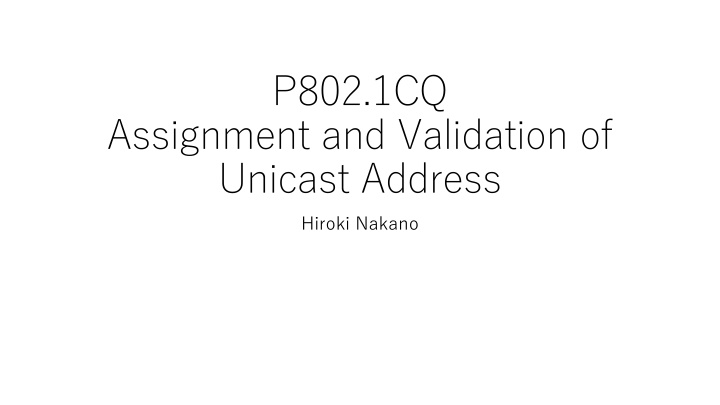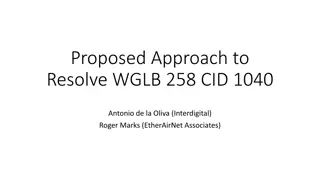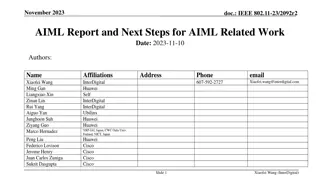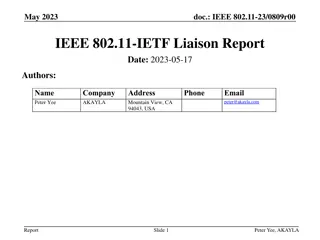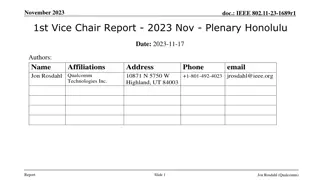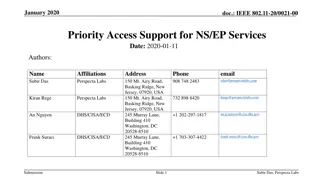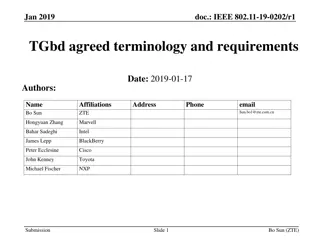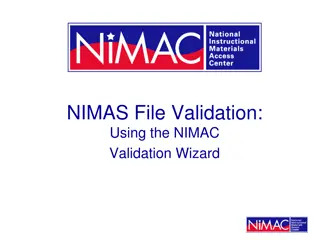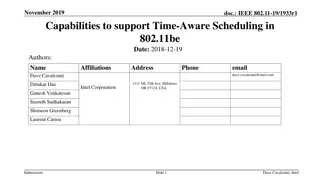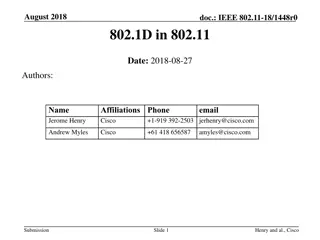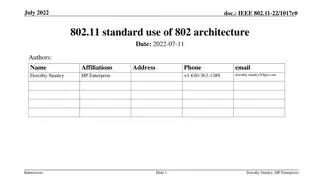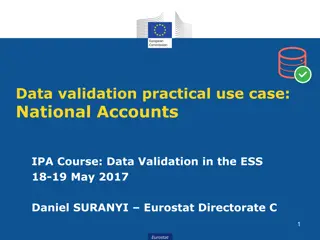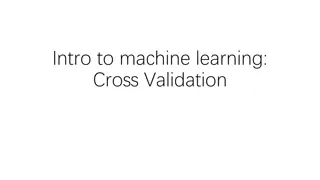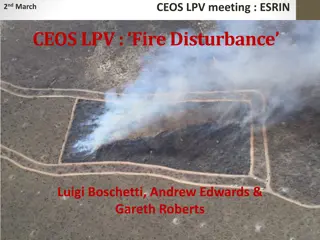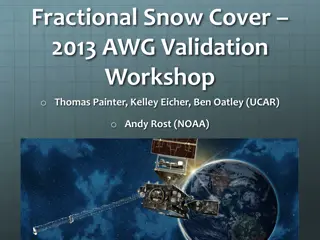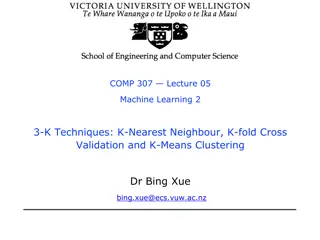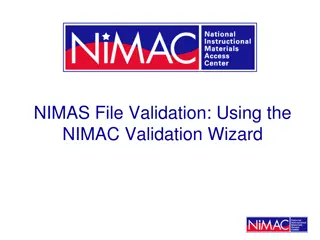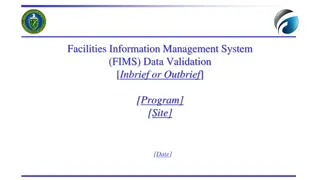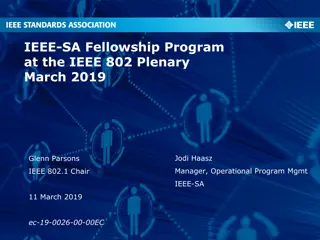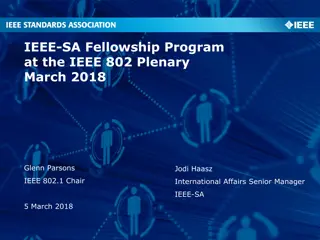IEEE 802.1CQ: Address Assignment and Validation Protocols
This document explores the assignment and validation of unicast addresses within IEEE 802 networks, emphasizing the need for uniqueness to prevent operational errors and security breaches. It discusses the challenges of ensuring globally-unique addresses, proposing the implementation of a single validation protocol alongside assignment protocols. Additionally, it looks at managing network addresses in both managed and adhoc environments, highlighting the use of protocols such as 802.1X and 802.1aq. The article also considers IEEE 802.11ai's efforts to streamline the Initial Link Setup process. Overall, the focus is on maintaining address uniqueness and efficient network management.
Download Presentation

Please find below an Image/Link to download the presentation.
The content on the website is provided AS IS for your information and personal use only. It may not be sold, licensed, or shared on other websites without obtaining consent from the author.If you encounter any issues during the download, it is possible that the publisher has removed the file from their server.
You are allowed to download the files provided on this website for personal or commercial use, subject to the condition that they are used lawfully. All files are the property of their respective owners.
The content on the website is provided AS IS for your information and personal use only. It may not be sold, licensed, or shared on other websites without obtaining consent from the author.
E N D
Presentation Transcript
P802.1CQ Assignment and Validation of Unicast Address Hiroki Nakano
Problem Statement How can we assign locally-unique unicast addresses? orchestration protocols? T11 FC-BB-6? random? Some other protocols? In case of multicast addresses, it may be impossible to detect collision and it s harmless relatively (really?) The most important thing is UNIQUE This is a prerequisite of 802 networks. Duplicate addresses are always an annoying problem for network administrators. Cheating address breaks forwarding databases and enables attackers to intercept frames. (although it is not directly related to assignment...) How can we assure uniqueness?
Assurance of Uniqueness Historically, a globally-unique address is assigned to each port by manufacturer. Operational errors always occurs. Do address assignment servers assure uniqueness? When you operate multiple assignment protocols on a network, how do they cooperate? My proposal is: 802 should have a single validation protocol as well as assignment protocols. (although it may be optional)
Assignment and Validation Multiple assignment protocols can be operated on a network and hosts can choose one of them. One validation protocol at most is operational. Results of validation are utilized by 802.1X, 802.1AE, etc. Assignment Assignment Assignment DUPLICATE Validation UNIQUE
Validation on Managed and Adhoc Managed Network Networks administrators manage. Administrators know when, where and what is connected to networks. For example: 802.1X can be used to check MAC addresses. MAC-based authentication is a common function for switches. 802.1aq can be used to gather active MAC addresses. Adhoc Network Networks nobody manages like home networks, wireless networks. Splitting into and uniting two networks sometimes happens. How? Is 802.1aq usable? other ideas? Address collision can occur when two networks unite. How does it resolve?
Other considerations IEEE802.11ai This is an effort to reduce time for Initial Link Setup. MAC address assignment may be included in Initial Link Setup procedure. To achieve this goal, timeout-less protocol is expected for 802.1CQ, that is, no timeout procedure in normal successful operation.
